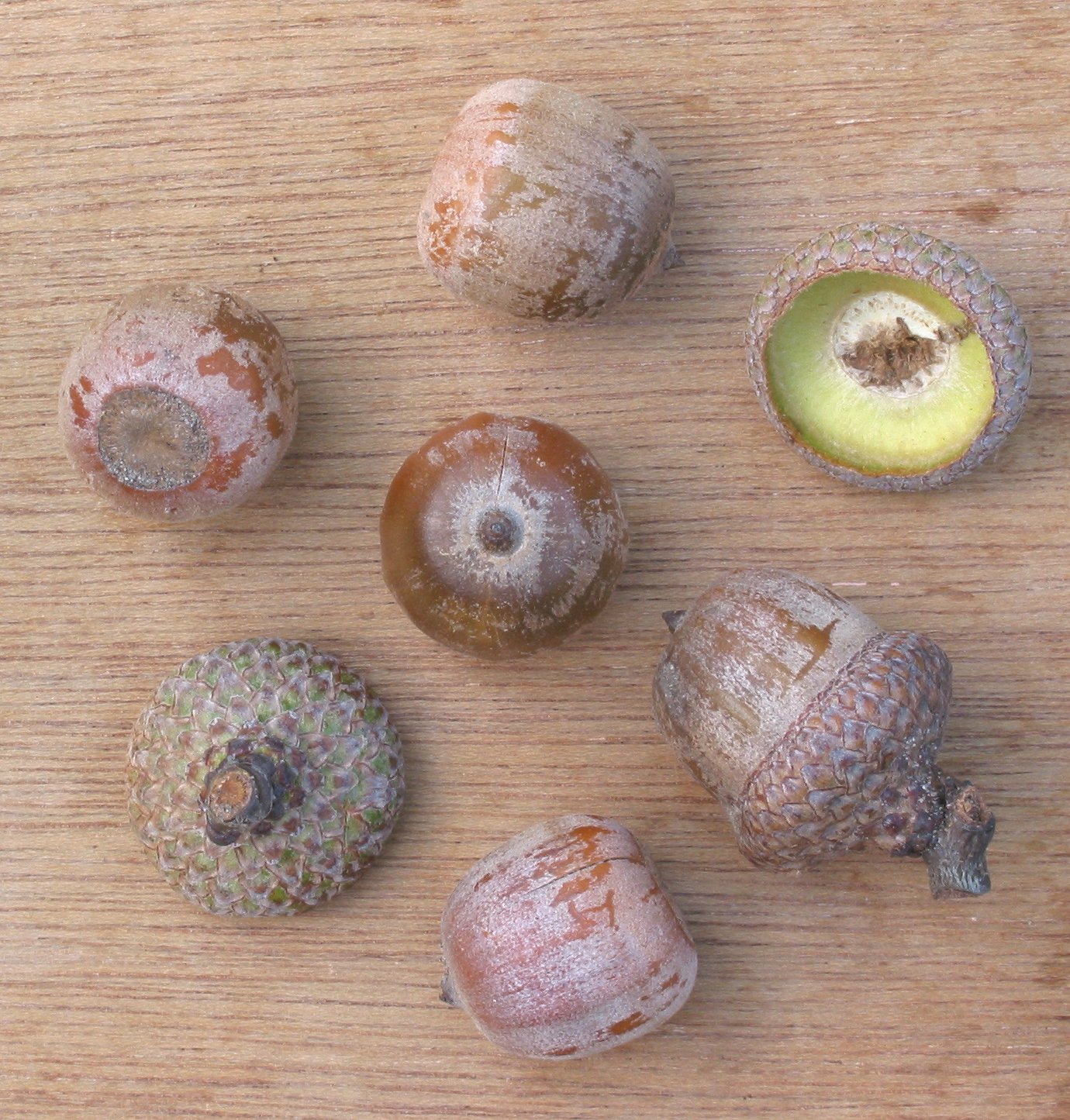Difference between revisions of "AY Honors/Edible Wild Plants/Acorn"
| Line 8: | Line 8: | ||
}} | }} | ||
<noinclude> | <noinclude> | ||
| − | {{EWP/Bake}} {{EWP/Fry}} {{EWP/Boil}} {{EWP/Tree}} {{EWP/Nut}} | + | {{EWP/Bake}} {{EWP/Fry}} {{EWP/Boil}} {{EWP/Tree}} {{EWP/Nut}} {{EWP/Flour}} |
</noinclude> | </noinclude> | ||
[[Category:Adventist Youth Honors Answer Book/Overlapping requirements|{{SUBPAGENAME}}]] | [[Category:Adventist Youth Honors Answer Book/Overlapping requirements|{{SUBPAGENAME}}]] | ||
Revision as of 00:55, 7 September 2013
Acorn
Description: Acorns are the fruit of the oak tree. They are a very important food source for wildlife. Creatures that make acorns an important part of their diet include birds such as jays, pigeons, some ducks and several species of woodpeckers. Small mammals that feed on acorns include mice, squirrels and several other rodents. Large mammals such as pigs, bears and deer also consume large amounts of acorns; they may constitute up to 25% of the diet of deer in the autumn. However, acorns are toxic to some other animals, such as horses. In some human cultures, acorns once constituted a dietary staple, though they are now generally only a very minor food.
Where found: The oak is native to the northern hemisphere, and includes deciduous and evergreen species extending from cold latitudes to tropical Asia and the Americas.
Availability: Fall
Use: The acorn contains tannin, which is very bitter and slightly toxic. Luckily, tannin is easily removed by soaking in water. Acorns from the white oak family have far less tannin than acorns from the black (or red) oak family, so if you have a choice, opt for white oaks. The first acorns to fall from the tree are likely to contain worms and moth larvae. Most of these bad acorns will float in water, while most good acorns will sink. At the beginning of acorn season (late summer or early autumn) you will find that most of the acorns will float and very few will sink. As the season progresses, you will find that most acorns will sink and few will float. Once you have sorted them, shell them. They can be opened with a pair of pliers or a nutcracker. Remove the meat from the shell, crush it into a fine powder (use a mortar & pestle or a food processor), and then soak it in water for about a week, changing the water twice a day. If you choose to, you can speed this process by boiling the shelled, crushed acorns in several changes of water. Native Americans would put the crushed acorns in a sack and then place the sack in a swift stream for several days. If after soaking, the acorn mush is still bitter, it needs to soak longer. When they are no longer bitter, spread them out on a cookie sheet and dry them in an oven at 120°C![]() for 90 minutes. They can be used as flour or to make acorn mush - a staple of the Native American diet. You can also skip crushing them and eat them as nuts, but uncrushed acorns will take much longer to leach.
for 90 minutes. They can be used as flour or to make acorn mush - a staple of the Native American diet. You can also skip crushing them and eat them as nuts, but uncrushed acorns will take much longer to leach.
Template:EWP/Bake Template:EWP/Fry Template:EWP/Boil Template:EWP/Tree Template:EWP/Nut Template:EWP/Flour

